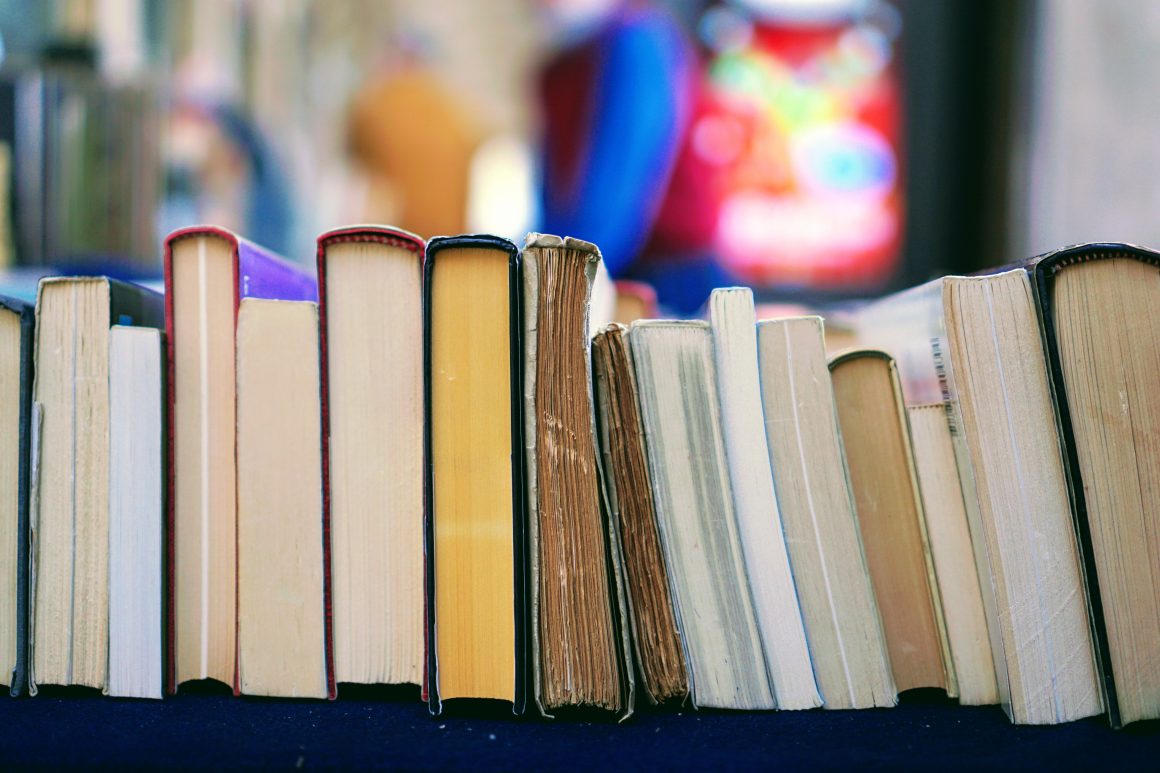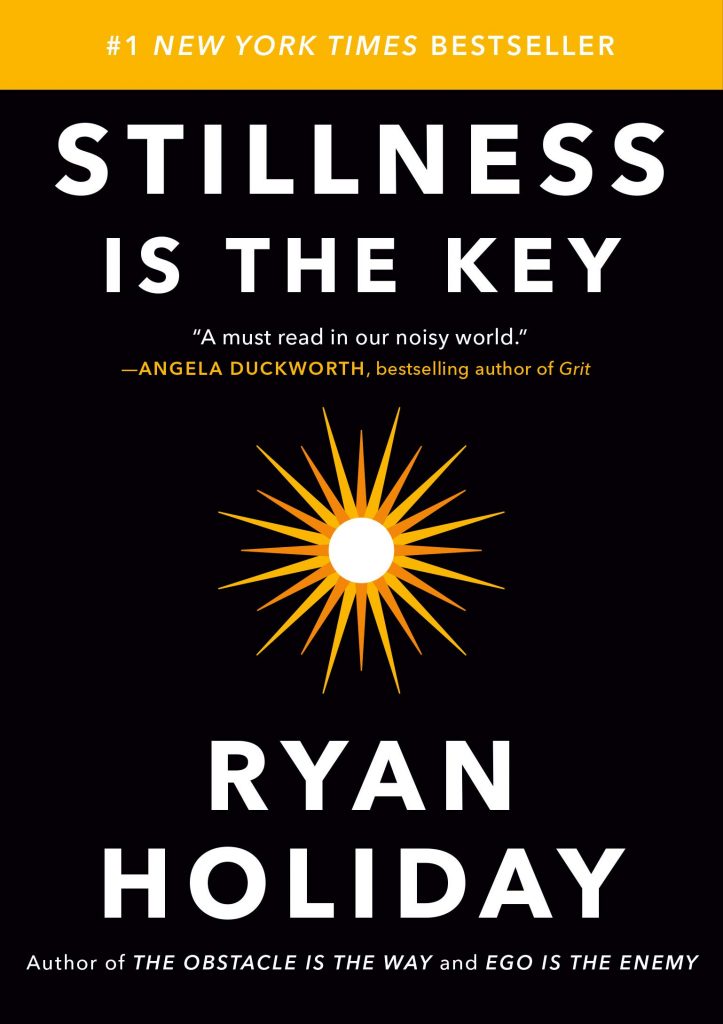
Andrea’s Book Nook: Four lessons I learned while reading Stillness Is the Key
By Andrea Silva Santisteban Fort, March 25 2021—
A few weeks ago, I came across this book, read it and loved it! It had a lot of good advice that I found useful for a time like this — a time of chaos and uncertainty. So, this week I wanted to share with you four simple but life-changing habits this book advises the reader to practice.
Journaling
The first habit that the author recommends is journaling. A lot of people — myself included — feel intimidated by it as they do not know how or where to start. But the thing is, journaling does not have to be elaborate or complex. It can be a relaxing and therapeutic way to clear your mind and try to get all your doubts and worries down on paper. There is no rulebook and nothing is written in stone. You can write gratitude lists, document your thoughts or use self reflection prompts — the options are endless. I personally started journaling in 2020. It all began with my intention to record the situation of COVID-19 in Peru, my home country, in terms of figures and legislation passed. After a few months, I realized it was not a good idea. At first, I naively thought the pandemic would only last a few months, but, as you know, that did not happen. When I noticed this habit did not benefit my mental health because as the numbers and restrictions got worse, I got even more stressed about it, I started to write more freely about more positive things. I journaled about my thoughts of the day, my hopes for the future and things I was grateful for — let me tell you, this was a total game-changer. Writing can be a fun and therapeutic hobby or activity and a tool that could document your self-development for the future.
The author explains that journaling is a therapeutic way to relax and let go of what is bothering you. It allows us to fill ourselves with self realization and love. If you are stressed, it is difficult to have a good quality of life.
Favorite quote: “Good decisions are not made by those who are running on empty. What kind of interior life can you have, what kind of thinking can you do, when you’re utterly and completely overworked? It’s a vicious cycle: We end up having to work more to fix the errors we made when we would have been better off resting, having consciously said no instead of reflexively saying yes. We end up pushing good people away (and losing relationships) because we’re wound so tight and have so little patience.” (Page 197)
Seek contentment
Another very important habit the author encourages is seeking a state of contentment with life and with yourself. I understood it as finding peace in yourself and looking for calm around you. The past year and the beginning of this year has been difficult. Everyone has had very different experiences and has gone through this pandemic in different ways. But it is important to do what you can with what you were given and to be as happy as you can be with that. You do not have to be super productive every day. By this, I do not mean that it is okay to ignore all your responsibilities, but to achieve them to the best of your ability, keeping in mind the difficulty of your circumstances. Be patient and reassure yourself that you are doing your best. I also think it is important to seek contentment in your current situation — although sometimes that seems impossible. One of the things I did in 2020 was to write down three things I was grateful for everyday. Sometimes those things were big blessings like the opportunity to go to university or having family and friends who support me. Other times, I wrote about little things that had made my day, like a good cup of coffee or the good weather. I know many people are in difficult situations and it is hard to see the glass half-full in these cases, but try to notice those little things that can make you feel happy and blessed that are often taken for granted.
Favorite quote: “Life does that to us. It kicks our ass. Everything we work for can be taken away. All our powers can be rendered impotent in a moment. What follows this is not just an issue of spirit or the mind, it’s a real physical question: What do you do with your time? How do you handle the stress of the whiplash?” (Page 159)

Build a routine
A third practice that I found very useful was to set a routine. It does not have to be something written in stone, but it can be a good guide to getting organised. You can also use a to-do list without set times if you want to give yourself more flexibility. The idea here is to find some order and stability in your life — especially when there is so much uncertainty out there. I personally prefer to use apps like Notion — which is free and practical — to plan my week. To build a routine or to formulate a schedule is a way to take more control of your own time, evaluate yourself and look for ways to improve. This way, it is easier to find time to do what you like, to work out, to study and to spend time with your family.
Favorite quote: “Rise above our physical limitations. Find hobbies that rest and replenish us. Develop a reliable, disciplined routine. Spend time getting active outdoors. Seek out solitude and perspective. Learn to sit—to do nothing when called for. Get enough sleep and rein in our workaholism. Commit to causes bigger than ourselves.” (Page 164)
Be present
I think this is the most difficult but most important habit to incorporate. Really living in the present moment is essential to finding stillness in yourself. From what I gather, being present means to focus all your energy and attention on what you are doing right now at this moment in time. You can do this with even the most mundane tasks. Having a cup of tea in your favourite mug, taking your time with it, enjoying the smell and savouring the flavour of the drink are examples of this. Most of the time we are distracted by everything that is going on around us. We constantly look for something to stimulate our brains. The advice this book gives is to avoid distractions and seek to be present. Everything will be fuller, calmer and you will begin to value the things and people in your life. Another way in which you can seek peace of mind is through meditation. For me, it is very difficult to meditate because when I close my eyes my mind goes to a thousand places. To solve this problem, I like to listen to videos that guide me through the whole process. Fear of the uncertainty of the future creates anxiety. Seek to live in the present with calm and stillness.
Favorite quote: “Not that all beauty is so immediately beautiful. We’re not always on the farm or at the beach or gazing out over sweeping canyon views. Which is why the philosopher must cultivate the poet’s eye—the ability to see beauty everywhere, even in the banal or the terrible.” (Page 120)
In summary, finding inner peace in a loud world is essential to improving your overall well-being. My intention with this article is to encourage you to try to be the best version of yourself. I know that we are living through difficult circumstances and that everyone has their own problems and worries. But I believe that by incorporating these practises, you can improve your quality of life and find more peace in this chaotic situation we are going through.
